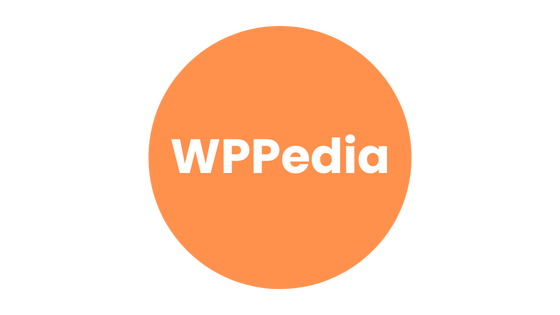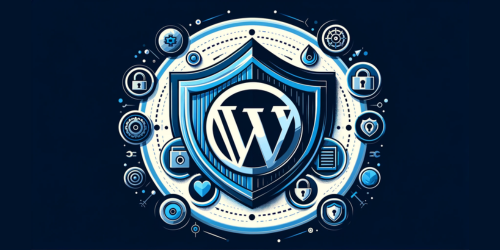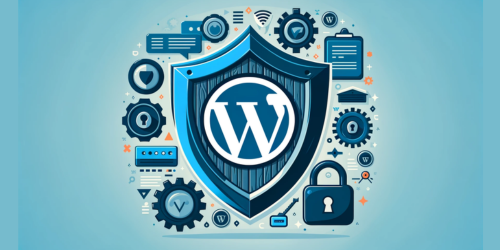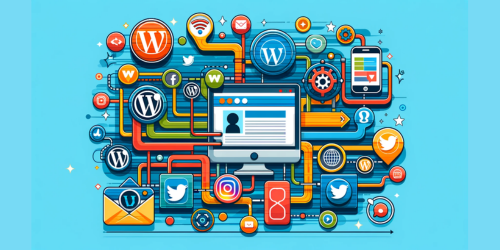Have you ever wondered why WordPress powers a staggering 43% of the web? It’s not just a stroke of luck. WordPress has risen as a titan in web development, offering a platform that blends user-friendliness with robust customization options. This duality is what we’ll focus on in our journey through WordPress development.
WordPress development is an umbrella term encompassing a range of skills and tasks: from creating simple blogs to developing complex, feature-rich websites. It appeals to a wide spectrum of users – from those with no coding experience using intuitive drag-and-drop interfaces, to seasoned developers crafting custom themes and plugins. Its open-source nature and vast community support have made WordPress a go-to choice in our digitally evolving world, offering scalability and flexibility unmatched by other platforms.
In this article, we’ll unravel the layers of WordPress development, providing insights into the varying learning paths and essential skills, and guiding those aspiring to become WordPress developers. Let’s embark on this enlightening path, exploring the rich tapestry of WordPress development.
Key Takeaways:
- WordPress learning time varies based on roles like full-stack developer, no-code developer, and business owner or blogger.
- Learning essentials include basic computer skills, purpose, prior experience with website builders or programming languages.
- WordPress development includes backend, frontend, or full-stack development, focusing on themes, plugins, and customizing WordPress sites.
- The process of becoming a WordPress developer involves mastering coding fundamentals, focusing on a specific area, and engaging with the WordPress community.
1. Understanding Different Learning Paths in WordPress
Embarking on the journey of learning WordPress, one encounters diverse paths, each unique in its demands and outcomes. These paths cater to different aspirations and skill sets, making WordPress accessible to a wide range of users.
Full-Stack Developer: Technical Depth and Estimated Learning Time
As a Full-Stack Developer, you’re delving into both front-end and back-end development. This route demands a comprehensive understanding of programming languages like HTML, CSS, JavaScript, and PHP. Typically, a full-stack WordPress developer’s learning curve spans from six months to over a year, contingent on prior knowledge and learning pace. For a detailed exploration, consider resources like Codecademy or Udemy.
No-Code Developer: Leveraging Page Builders and Their Learning Curve
For those inclined towards a no-code approach, WordPress offers an array of drag-and-drop page builders. This path requires considerably less time, often just a few weeks to grasp the basics, extending to several months for proficiency. Tools like Elementor and Divi are fantastic starting points. Fo more insights about why use Elementor for WordPress dive here.
Business Owner/Blogger: Basic Management and Usage
Business owners and bloggers typically need basic management skills, which can be acquired in a few days to a week. This learning path focuses on navigating the WordPress interface, creating content, and understanding essential settings.
2. Essential Skills and Knowledge for WordPress Learners
Diving into WordPress learning, certain foundational skills and knowledge significantly ease the journey.
Basic Computer Literacy and Its Role in Learning WordPress
A fundamental grasp of basic computer operations, like using text editors, managing files, and general web navigation, lays the groundwork for a smoother WordPress learning experience. These skills are essential for efficiently managing WordPress’s interface and content.
The Importance of Having a Learning Goal or Purpose
Setting a clear objective for learning WordPress – whether it’s to build a personal blog, an e-commerce site, or to become a professional developer – provides direction and motivation. It helps in structuring the learning process and choosing relevant resources.
The Advantage of Previous Experience in Website Building or Coding
Prior experience with website builders or any programming language propels the learning curve forward. Understanding basic web development concepts or familiarity with programming can significantly speed up mastering WordPress’s more technical aspects.
3. Estimated Learning Time for Different WordPress Users
Different WordPress learner categories have varying learning curves, influenced by numerous factors.
Time Frames for Different Learner Categories: Developer, Power User, and Basics
- Developer: For those aiming to build custom WordPress functionalities using code, the journey might extend over a year.
- Power User: This pathway, blending plugins and themes to create diverse sites with minimal coding, can span from one to four years.
- Basics: Learning the fundamental features of WordPress, suitable for everyday users, can be achieved in less than a week.
Factors Influencing Learning Duration and Proficiency Levels
The time invested, previous experience, and the learning resources used are pivotal in determining how quickly one can become proficient in WordPress. Online courses, community forums, and consistent practice play significant roles in accelerating learning.
4. Role and Responsibilities of a WordPress Developer
Embarking on a career as a WordPress developer unveils a plethora of roles and responsibilities.
Diverse Roles Within WordPress Development
A WordPress developer may specialize in creating themes, plugins, or offering custom solutions for clients. Their expertise can range from front-end to back-end development, encompassing various aspects of website creation and maintenance.
Key Tasks and Responsibilities in WordPress Development
Responsibilities include developing custom themes and plugins, optimizing websites for performance and SEO, ensuring security, and providing ongoing site maintenance. A detailed overview of these responsibilities is available on Wppedia’s job descriptions for WordPress developers.
5. Becoming a WordPress Developer: A Step-by-Step Guide
The path to becoming a proficient WordPress developer encompasses several essential steps.
Fundamental Steps to Becoming a Proficient WordPress Developer
- Mastering Coding Basics: Start with understanding fundamental programming languages like HTML, CSS, and PHP.
- WordPress-Specific Learning: Gain knowledge about WordPress core, themes, and plugin development.
- Choosing a Focus Area: Specialize in a specific area of WordPress development, like theme or plugin development.
Importance of Community Involvement and Portfolio Building
Engaging with the WordPress community through forums and events, like WordCamps, is crucial for learning and networking. Building a portfolio showcasing your WordPress projects is also vital in establishing credibility and attracting potential clients or employers.
6. Conclusion
In summarizing our exploration of WordPress development, it’s clear that the journey varies greatly depending on your goals and background. Whether you’re aspiring to be a full-stack developer, a no-code wizard, or a business-focused user, WordPress offers a flexible and enriching learning path. Remember, the key to mastering WordPress lies in continuous learning and active community engagement. Embrace the process, and watch as your skills grow and evolve in this dynamic digital landscape.
7. Frequently Asked Questions
Q: How Hard is it to Learn WordPress Development?
Learning WordPress development varies in difficulty based on your background. For those with basic web development knowledge, it’s moderately challenging. Complete beginners might find it more demanding but achievable with dedication. For more insights Delve into WordPress Challenges: So Hard to Use?
Q: Can I Learn WordPress in 2 Weeks?
Yes, you can learn the basics of WordPress in 2 weeks. This includes understanding the dashboard, themes, plugins, and basic site setup. Mastery, especially in development, will take longer and require ongoing practice. For knowing best techniques to learn WordPress for beginners Check this.
Q: Is WordPress Dev Hard?
WordPress development can be challenging, especially when diving into theme and plugin development. It requires understanding PHP, HTML, CSS, and JavaScript. However, with the right resources and practice, it becomes manageable.
Q: Is WordPress Easy for Developers?
For developers with a background in web technologies, WordPress can be relatively easy to pick up. Its extensive documentation and supportive community make learning WordPress development more accessible.



